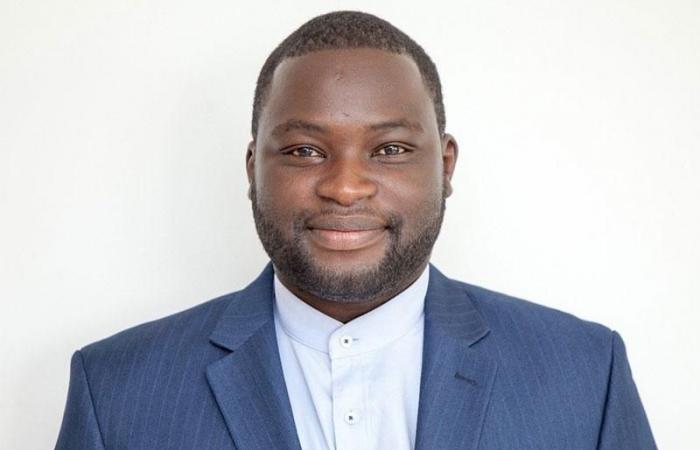Senegal is this rather special country where even during the holiday season, fertile minds will find the care to create a useless controversy, bordering on indecency. This time, the controversy wanted to take away the professor and emeritus philosopher Souleymane Bachir Diagne. As in any vulgar agenda to attack idols, the scouts will have been almost everywhere on social networks with their sounding board to be outraged by the “recurring” interventions of the Senegalese scholar on the public channel Rts1. Our modern censors do not want to see free minds on state media and think that we should sanction any intellectual, any executive, any personality who did not take a stand for their cause at the time when he crossed swords with the state. Today they embody the State and should inform their support that there is a democratic tradition and a dynamic of free spirits that nothing can break in this Senegal.
What are we trying to criticize Professor Souleymane Bachir Diagne? We seek to criticize Professor Diagne for not having had an audible voice at a time when Senegal was fighting to “safeguard its democracy”. The shortcuts of a democratic struggle with idle contours and rather deceitful promoters will be discussed on other occasions. But, this country will not fail to excel in its logic of destroying everything that is greater than itself. No one can be a prophet on this earth in the eyes of our compatriots, faced with the immensity of intellectual talent, moral and academic qualities from another world, we prefer a leveling down. This could have hurt, but when we dig a little into the journeys and accomplishments of ember blowers, we realize an emptiness which is only compensated by noisy din and insults at the mouth. If we want to prohibit intellectuals like Souleymane Bachir Diagne from speaking on Senegalese sets because he goes beyond all partisan considerations and commits violence to speaking out when everything can lead to chaos, we are leaving to be in a country where no idea courageous, no universal light and no lucid voice will be able to assert itself.
We have difficulty celebrating our heroes, I have had to say it again and again several times in these columns. Faced with attempts to cast opprobrium on Professor Souleymane Bachir Diagne, I prefer to read to his detractors the following lines from France Culture to present in March 2023 a series of interviews in five episodes in the collection A Voix Nue (still accessible in line) entitled: “Souleymane Bachir Diagne: humanism reinvented.” The introductory text said the following: “Souleymane Bachir Diagne is a great voice in philosophy today and one of the most eminent intellectuals of our time. A man who tries to develop a thought oriented towards a shared humanism. A thought on three continents: he was born in Saint-Louis, Senegal in 1955 and taught for twenty years at the Cheikh Anta Diop University in Dakar, but he studied in Paris at the Louis-LeGrand high school before joining the Ecole Normale Supérieure in rue d’Ulm, and since the early 2000s, he has been a renowned professor in the United States, first at Northwestern University in Chicago then at Columbia University. in New York where he teaches in the Department of French and Philosophy, and where he directs the Institute of African Studies. Alongside this triple geographical anchoring, it is necessary to point out his appetite for languages, he knows something like seven, which gives him a definite advantage in developing a philosophy of translation, a true common thread in his intellectual journey. A presentation could not be more humbly true and laudatory, especially since everything said there is palpable. It is an exceptional Senegalese that we have in the person of Souleymane Bachir Diagne, we could not understand how some would want to refuse such a voice to be heard in his native country, after having given so much for the training of young people and for the development of academic knowledge.
Our country is going through an era of acculturation where one might think that it is a tendency to preach intellectual and academic mediocrity, to the point of thinking that intelligence, culture, reflection and lucid analysis would be counter-values. . We will have read in this controversy that Senegal does not need thinkers or philosophers, but work. The jump into the abyss can be scary and overwhelming! We are a long way from Senegal in the 1970s when a President named Léopold Sédar Senghor read on national radio and television a letter and a telegram that his comrade from Khâgne, Professor Jean Bousquet, then director of the School Normale Supérieure (Ens), had sent him to inform him that a young Senegalese named Souleymane Bachir Diagne had become a normalien. Time truly can corrupt the entire soul of a country!
On July 14 and 15, 2024, a conference was held at the Ecole Normale Supérieure (Ens) at the initiative of researchers David Chaillou, Alain Policar and Perrine Simon-Nahum, the director of the philosophy department of Ens. This conference aimed to measure “the importance of Souleymane Bachir Diagne’s thought in its unity, its main and essential question today, but also its journey and its diversity.” The entire trajectory of the Senegalese thinker was studied and reviewed, from the University of Dakar to Columbia University via Ens, the Collège de France and even Northwestern University. His contribution to African philosophy, religious thought, translation and the promotion of universalism was exposed to an audience of researchers and not the least important. When we see all these academic tributes, we can say to ourselves that there is a lot of work to be done to make the sons and daughters of this country who excel in many fields better known. For Souleymane Bachir Diagne, his work must be better known and more widely disseminated to our compatriots; such logic would certainly prevent certain amalgamations. Faced with the torrent of incongruities that have been said about Professor Diagne, my New Year’s prayer would be to invite many young people of my generation and some of my elders to go and read The Fagot of My Memory by this child of Saint -Louis who grew up in Ziguinchor, before maturing in the streets of Dakar. It is a testimony of humanity, a booklet of self-sacrifice and an anthology of the experience of a Senegalese conquering the world in his own way. To Professor Diagne, thank you for carrying the Senegalese standard so high in the academic, cultural, philosophical and religious worlds. This chronicle cannot do justice to the full extent of his work.






